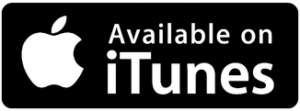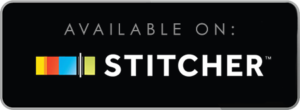Are you someone who is looking to transition into law? In this engaging podcast episode, Jim and Tyson sit down with Bill Gshwind of Minnesota Construction Law, who shares his unique journey into law after a 25-year tenure in business.
In this episode, Jim and Tyson interview Harlan Schillinger a Legal Marketing expert, strategist and consultant. They will go over what was like to advertise back then, the main changes in marketing and advertising nowadays, and common mistakes lawyers do.
[smart_track_player url="http://traffic.libsyn.com/maximumlawyer/Episode_116.mp3" social_linkedin="true" ]
Legal Advertising in the early 80’s
“We then went out across the country and we met with law firms. That was the challenge. I went to the Yellow Pages, I opened up the book and I looked for the biggest add. I called the lawyer up and I said; I have something I’d like to run by you. And they were sceptical because they didn’t want to be the first.”
The phone banks lit up!
“When the commercial ran, the entire phone bank lit up. And at that point, lawyers said: where do I send the money, how do I sign up?!”
Marketing & Human Nature
“There was a tremendous correlation between advertising and human nature, because you have to make that connection...”
The change in advertising
“Things changed when competition started to come in. People started to build agencies. More and more lawyers started to advertise. The market got crowded and things changed in the consumers mind.”
Advertising Concepts
“The Internet is a game changer, because it allows you to reach a lot of people, it allows you to be yourself and that’s a whole new commodity. But advertising is advertising, you wanna appeal to someone…”
Talk to an audience as you would talk to a jury
“If you are looking for valuable business, you have to have more than a message, you have to have a story, because it’s about caring, it’s about compassion, it’s about realle restoring your life to the way it was before the accident…”
Marketing mistakes nowadays
Lawyers completely underestimate intake and conversion. Also, lawyers don’t understand how to develop a referral business from existing clients.
“If I had 1 client or I had 50, I would constantly stay in touch with them or find a way to stay in touch with them after settled the case. (..) I can honestly tell you that the best case that comes into your office comes through a referral.”
Intake
DON’T CONFUSE AN ANSWERING SERVICE WITH AN INTAKE SERVICE!
“Intake is answering the phone, and making somebody feel absolutely welcome and formulating a relationship as quickly as possible. Within the first couple of words, somebody is going to decide whether they are going to stay with you, or they are going to find someone else…”
Lead Docket, an intake management system that is focused on simplicity and a straightforward and consistent process for every lead.
- Gain better knowledge of where your leads are coming from
- Completely manage your marketing efforts
- Increase your profits without more spending
- Know your ROI on all advertising
Jim’s hack: Each time I do something different this month, I’m making it into a sticky note, and in the end of the month I’m going to compile all my sticky notes into different categories and then I’m gonna either automate it, eliminate it, or delegate it.
Harlan’s hack: If you want to grow; WORK ON YOUR BUSINESS, NOT IN YOUR BUSINESS.
Tyson’s tip: Upload notes to your firm’s WIKI, so you can share notes with other people in the firm. People will learn from this notes.
//
Thanks so much for listening to the show! If you want to know more about this and keep on maximizing your firm, please join our Facebook Group or like us on Facebook and comment!
You can also go to MaximumLawyer.com or, if you’d prefer, email us at: [email protected]
Do you want to get on the show? Shoot us an email or message us!
The Maximum Lawyer Podcast. Partner up, and maximize your firm.
Guild Membership
Free Access to Stage 1 of Maximum Lawyer in Minimum Time
Sign Up Today!Customer Reviews
4.9 out of 5
Join Our Facebook Group
Enjoy Exclusive Access To Stage One Of The Maximum Lawyer In Minimum Time Course
Privacy Policy
This privacy policy has been compiled to better serve those who are concerned with how their ‘Personally Identifiable Information’ (PII) is being used online. PII, as described in US privacy law and information security, is information that can be used on its own or with other information to identify, contact, or locate a single person, or to identify an individual in context.
Please read our privacy policy carefully to get a clear understanding of how we collect, use, protect or otherwise handle your Personally Identifiable Information in accordance with our website.
What personal information do we collect from the people that visit our blog, website or app?
When ordering or registering on our site, as appropriate, you may be asked to enter your name, email address or other details to help you with your experience.
When do we collect information?
We collect information from you when you register on our site, place an order, subscribe to a newsletter, Use Live Chat, Open a Support Ticket or enter information on our site.
How do we use your information?
We may use the information we collect from you when you register, make a purchase, sign up for our newsletter, respond to a survey or marketing communication, surf the website, or use certain other site features in the following ways:
- To personalize your experience and to allow us to deliver the type of content and product offerings in which you are most interested.
- To improve our website in order to better serve you.
- To allow us to better service you in responding to your customer service requests.
- To quickly process your transactions.
- To send periodic emails regarding your order or other products and services.
- To follow up with them after correspondence (live chat, email or phone inquiries)







